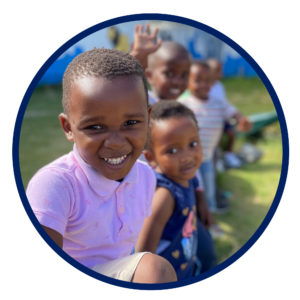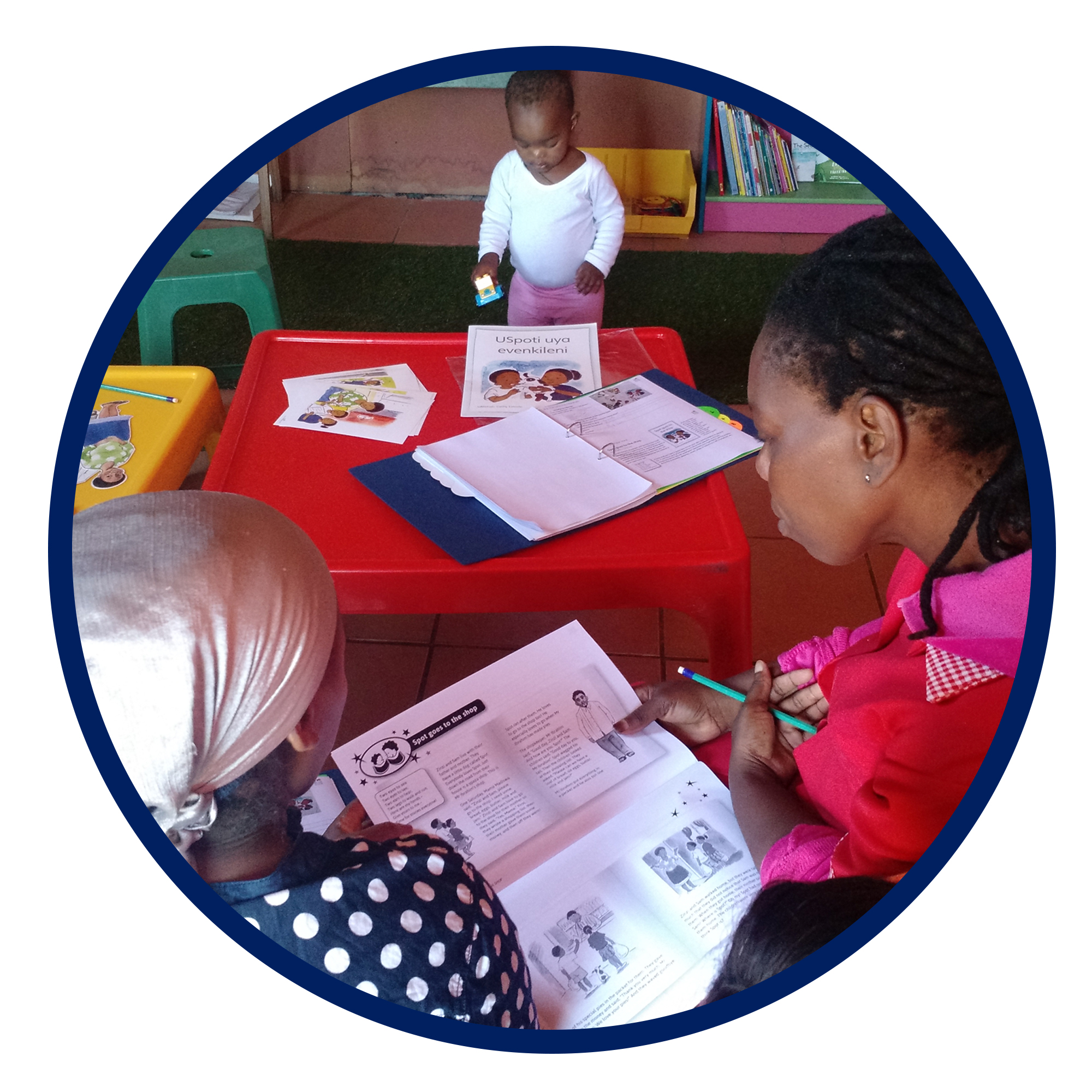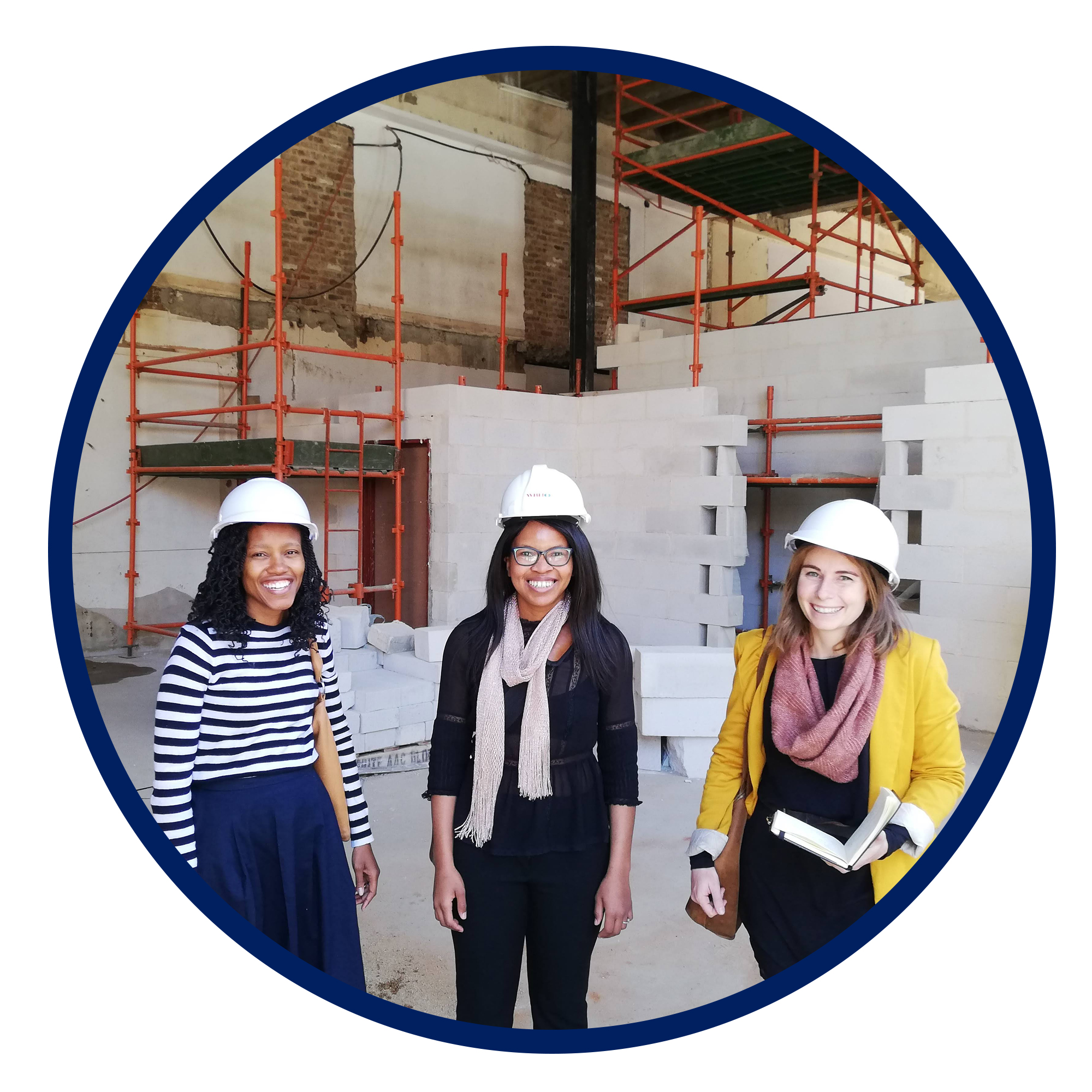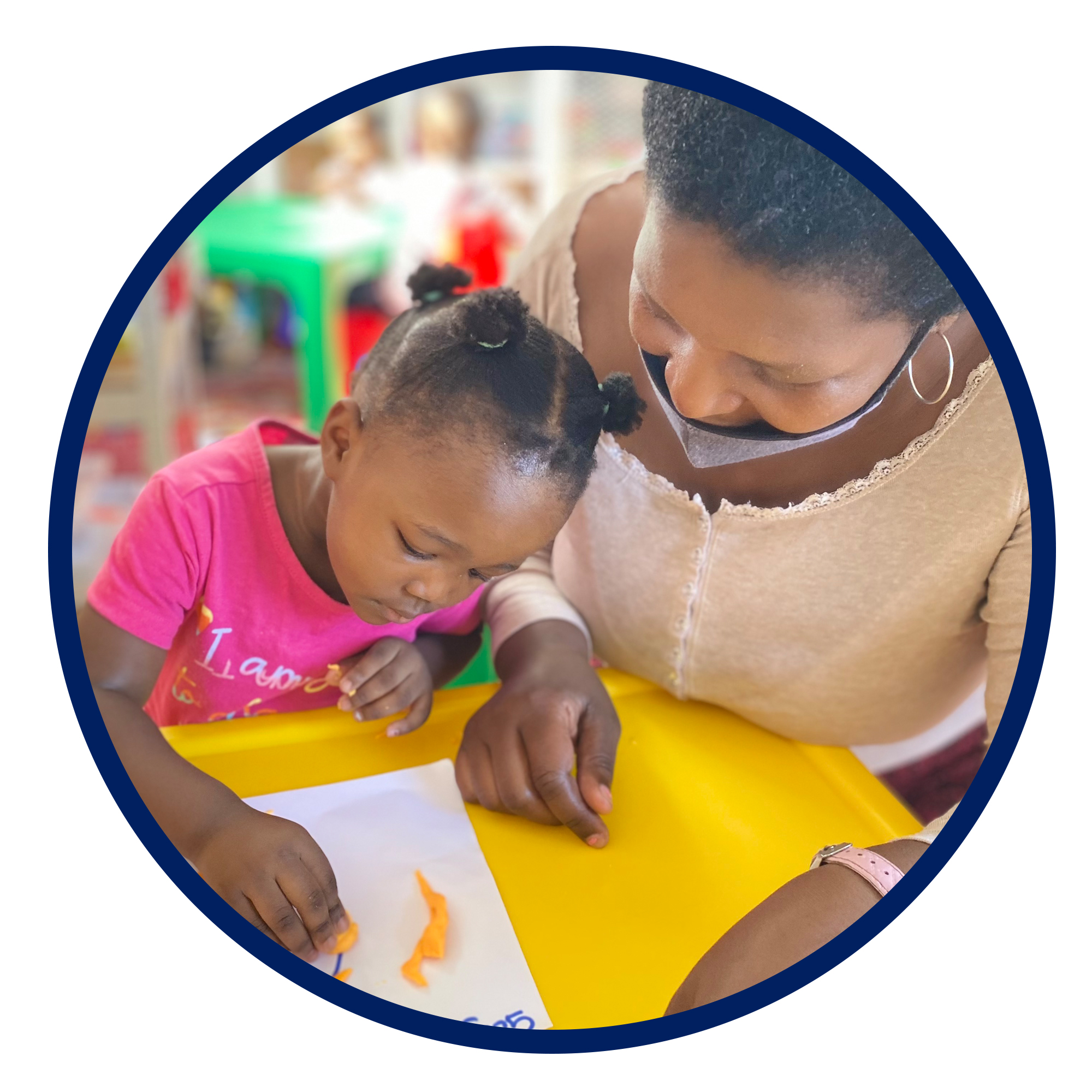
Blue Door ECE is an evidence-based preschool programme designed to provide children throughout South Africa with affordable access to the high-quality early education that they need.
In contrast to the daycare-oriented approach observed in the vast majority of existing educare centres throughout South Africa, the core function of Blue Door preschools is to create opportunities for engaging learning experiences.
Well-supported teachers

Our educators ensure that they meet each child where he or she is at. They are supported in this function by our rigorous up-front training program, a teaching tablet loaded with weekly ‘Activity+Interaction’ guides created by our centralised curriculum team, and ongoing professional development from roaming instructional mentors.
Infrastructure Partnerships

Apart from our high-quality early education offering, what makes Blue Door unique is our strategy of partnering with infrastructure providers (such as social housing developers and innovative organisations like the Bright Kid Foundation) to ensure the cost of building / installing our educare centres does not fall to the families requiring our services.
Our aim is to keep our fees as low as possible in order to ensure broad-based access to our offering.
Two-Generation Approach

Just as a young child’s developing brain is open to enrichment through positive learning experiences, certain environmental stressors are particularly harmful to brain development in the early years. Sources of ‘toxic stress’ such as exposure to violence, substance abuse, and neglect produce harmful disruptions to hormone regulation which, in severe cases, can negatively impact the surface area growth of a child’s brain.
Blue Door advocates a trauma-informed “Two Generation” approach with centre-based physical and mental health support for primary caregivers and children (vaccination, nutritional support, diagnostic screening, special needs support) and where necessary, home-based engagement by qualified social workers and mentors (psychological counselling, interaction modelling, maltreatment prevention).
